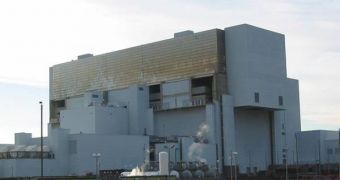Despite ample opposition by environmentalists and anti-nuclear activists, the Nuclear Regulatory Commission has allowed the Oyster Creek nuclear reactor in South Jersey to continue to operate for more than 20 years, deeming that the threats the machine poses to the environment and its workers are minimal. Debate has sparked over this particular reactor on account of the fact that it is the oldest in the US, having been built in 1969. Over the years, rust has corroded its steel lining, and this has prompted numerous concerns about its safety.
The role of the liner is not a secondary one, as it is responsible for holding hundreds of tons of water inside a pool during reactor refueling. Also, in the unfortunate event of a radioactive leak, it is the purpose of the liner to catch a good part of the radioactive Steam that would be generated by a meltdown. Engineers at the Amergen Energy Company, who have conducted extensive and numerous studies inside the facility, report that there has still been sufficient metal inside the lining to ensure the safe operation of the plant, and also that the rust seems to stop progressing.
The New York Times informs that the NRC has allowed some 51 other nuclear generators to keep on operating for variable amounts of time since 2000, after their original, 40-year-old licenses expired over the past 9 years. Also, the new decision is a clear signal to those who criticize this line of action throughout the country that protests will do little to alter the decision-making process. Among the facilities that will most likely get an extension, the NRC has included the Indian Point 2 and 3 in Buchanan, New York, and the Vermont Yankee in Vermont.
Of the four members of the Commission that needed to approve the extension only three did so fully. Another dissented with parts of the ruling, but said that he would support the measure nonetheless. Thus, the officials upheld a lower court ruling, which decided against environmentalists and other concerned citizens and made up their mind in favor of the nuclear power plants.
The members of the board stated that the decision to only allow reactors to function for 40 years was made because of antitrust concerns and other economic considerations, and that authorities at the time had no fear that the reactors themselves wouldn't continue to physically operate until the present moment. That is to say, some even consider allowing each of these constructions to operate for as much as 80 years, upholding that concerns over their safety are misplaced.

 14 DAY TRIAL //
14 DAY TRIAL //